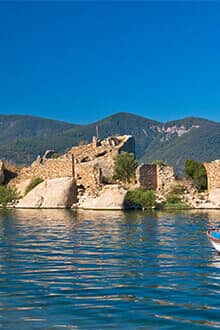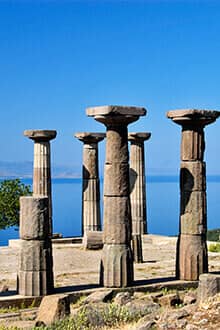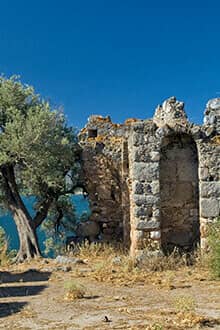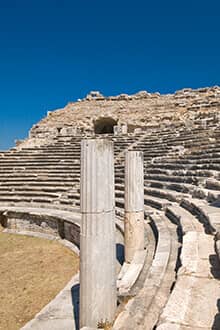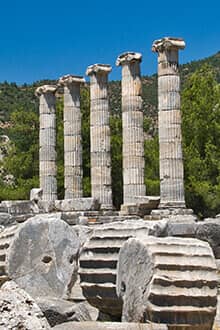

Ancient Anatolian Philosophers
Assos / Çanakkale – Ephesos (Selçuk) – Clazomenai (Urla) / İzmir – Miletos (Balat) – Priene (Güllübahçe) / Aydın – Herakleia – Lake Bafa (Muğla)
Anatolia is the homeland of philosophers who are the fathers of modern science and humanities. Among these homelands, Ionia on the shores of the Eastern Aegean and the ancient city of Miletos in Asia Minor come first.
Thales of Miletos was the first philosopher who claimed that he observed nature not for the sake of the gods but for his daily practical needs. He was the first person who observed nature objectively for the sake of curiosity.
His student Anaximander and Anaximander’s student Anaximenes of Miletos continued his legacy. They attempted to explain the origin and structure of the world in a rational manner. Anaximander was the first to discribe Earth as suspended in emptiness, with no support from anywhere.
Heraclitus of Ephesos saw the world in a continual state of flux and fire was conceived as the underlying order of the cosmos, continuously transforming itself yet remaining the same.
Anaxagoras, born in Clazomenae, regarded material substance as an infinite multitude of imperishable primary elements, understanding all generation and disappearance of materials as the mixture and separation of these elements respectively. He believed that all substance is ordered by an ordering force, the cosmic mind (nous).
A philosophical school was established in Assos under the rule of Hermias of Atarneus, who was a former slave of Eubulus, a Buthynian banker, and a former student in Plato's Academy. Hermias invited a number of philosophers and natural scientists to Assos, including Aristotle and Xenocrates whom he knew from Plato’s Academy in Athens.

